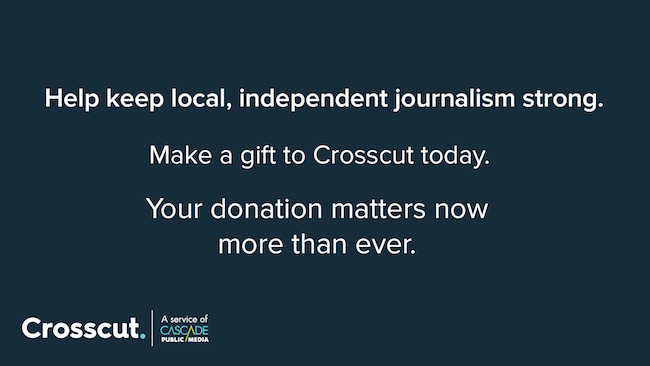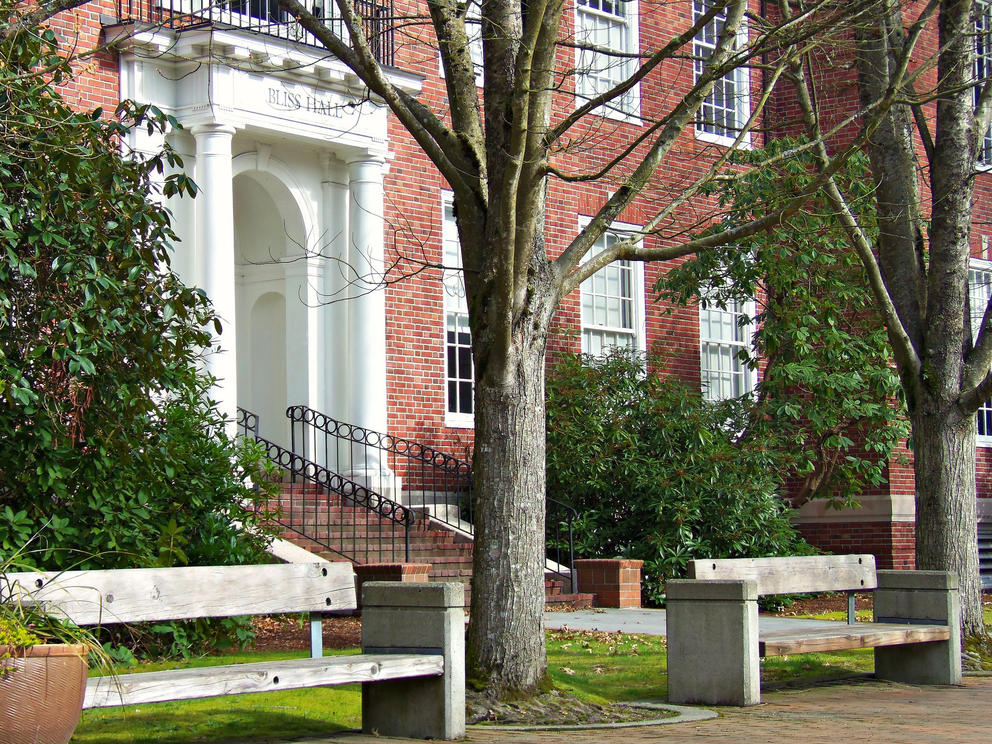That certainly was not my experience with college, either as a student or a parent.
My folks made clear to me that they expected me to get a college degree and that where I went and how I managed it was on me. They did not pick the school, but they agreed to help pay for living expenses. I had to earn the cost of tuition. If I didn’t want to pay, I had to get a scholarship. My parents’ zeal for my well-being was strong. So were their principles regarding their children taking on responsibility for shaping their own future.
I was not without advantages. They did send me to a college prep school, Lakeside in north Seattle, to help me recover from a mediocre academic performance and a rather distracted and listless dedication to school work. My folks had briefly considered sending me off to what amounted to a strict Canadian academy modeled on a 19th century English boarding school to straighten me out, but I pledged on my knees to do better when that school sent what felt like a Royal Navy impressment gang to gather me up.
At that time there, in the early ’70s, there was an understanding that going to Lakeside, still an all-boys school when I started, was indeed preparation for higher education. The school’s main college adviser at that time was Vernon “Doc” Parrington, a crusty old history teacher whose father, Vernon Louis Parrington, had been a Pulitzer Prize-winning professor and author at the University of Washington. Parrington Hall is named for the father. Lakeside’s Doc Parrington was one of my favorite gruff-love teachers — I loved history, if I disliked many other subjects (math, French, physics, gym …), and he pushed me to read more widely and dig more deeply.
Get daily news in your inbox
This newsletter curates some of the most important headlines of the day from Crosscut and other news outlets.
As college counselor, it seemed to me that he followed the old boy’s school traditions of pigeonholing students and lining up their higher-education aspirations with his sense of where he could get them in, based on their academic records, personality, and college standards. He once told me he could guarantee that he could get even the worst Lakeside student in somewhere. It wasn’t corruption; it was the idea that even the worst Lakeside student would qualify somewhere.
I should point out Lakeside’s student body at the time was perhaps more diverse than now in terms of academic ability. Bill Gates and I anchored opposite ends of the SAT bell curve.
We Lakesiders were students of enormous privilege. Our families could afford the investment of preparing their teenagers for higher education by sending them to a high school that was, in effect, a minicollege. The school was competitive: SAT scores were known; classes were often vigorous debates with discussions not unlike college graduate seminars; expectations were high. I was certainly lectured that I should make something of my opportunity and advantages, though I was left to figure out what.
I considered a number of colleges. The summer between my junior and senior year I drove across country with my best friend to tour intriguing campuses — Oberlin, Antioch, Swarthmore, Connecticut College are a few I remember. I wound up going to the brand new Evergreen State College in Olympia.
It had a number of appeals. I could get in, for one thing. My academic record was not great, nor were my test scores, especially in math, where I ranked in a percentile very near the bottom. At Lakeside I had received a “gentleman’s” D+ in algebra because my instructor was sympathetic due to my great, if futile, efforts to understand the subject.
Also, Evergreen was affordable. With hard work in a summer, I could pay my year’s tuition, minimizing the need to work during the school year. It was also close to home, but not too close, which was an asset. It was near a relatively enlightened draft board in Seattle, too, important to me as this was the late-stage era of the Vietnam draft, and I had an appeal of my draft status that meant the slant of the nearest draft board could be important. One in urban Seattle seemed better, say, than one in rural Ohio.
I was mainly thrilled with the idea of going to a college that was starting from scratch, one that offered a seminar-based style of education that had helped me enormously, and where I had complete academic independence to design my own curriculum. I seized that opportunity with relish. I combined the study of history in seminars with the practice of journalism at the school newspaper, radio station and through internships at real news operations. It was do-it-yourself schooling. Not everyone thrived there, but I did, partly because my parents had insisted my education was in my hands. So, too, my successes and failures, and the consequences of each. Funnily enough, politics, journalism and history have been my professional career since.
I brought much of the do-it-yourself philosophy to my own two kids’ education. They were largely homeschooled in what would have been junior high and high school. They were part of an experimental homeschooling cooperative that morphed into the Puget Sound Community School — a kind of Evergreen for teens. Despite the handicaps of not formally graduating from high school, my kids both found their way into colleges and thrived there, despite being millennials with “hippie” parents. I did hire a college counselor to help them think through their options. They did what they needed to do in getting their applications together, getting scholarships and financing, and were helped by loans and assistance with tuition from the family and a late family friend. They both earned bachelor’s degrees, and both have done well navigating non-traditional paths.
It has not always been easy and there were times when I wished I could have waved a magic wand or had an unlimited bank account to make everyone’s path smoother. At least that’s the fantasy: money could solve it all. But I know in my heart that it wouldn’t have. I’ve seen in life that it can’t.
I’m a believer that education is best when students are driven by their own passions, not force-fed their “dreams” by their parents or institutions. A good education is not the status symbol of being accepted into a blue-chip college or university. A parent’s job, as I saw it, was to nurture the passions that will energize their lives and values.
Pardon me if I was not a zealous enough parent. All parents wish they could do more for their kids. But paving my path or my children’s with outright cheating and corruption never entered my parents’ minds nor mine. It would have defeated the purpose, at the very least.




